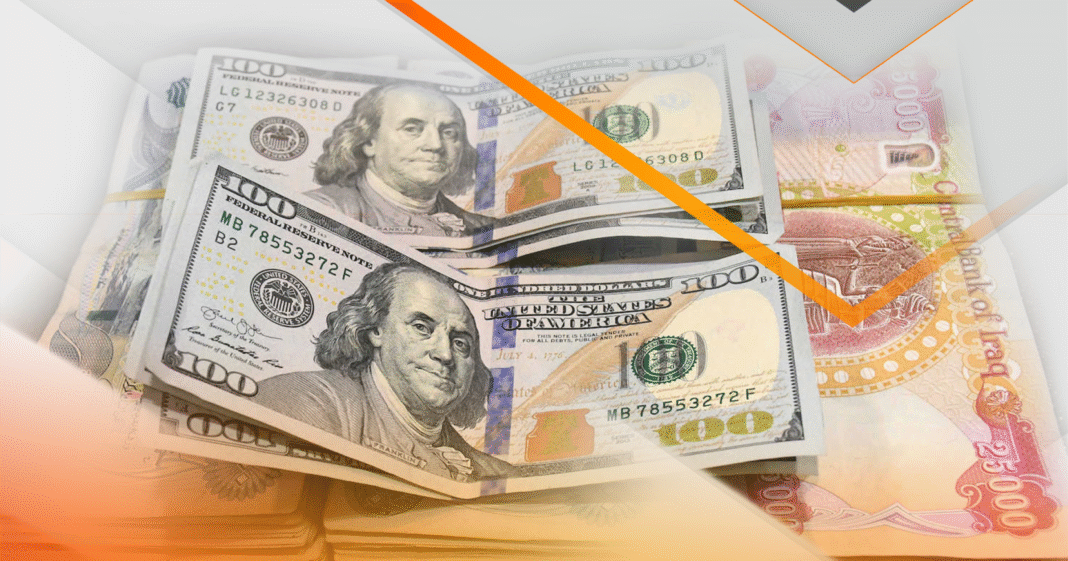The exchange rates of the US dollar against the Iraqi dinar fell across Baghdad and Erbil, showing a continued shift in the local currency market. Dealers in both cities reported lower figures at the start of trading, signaling reduced pressure on the dinar after recent fluctuations.
In Baghdad, traders at the Al-Kifah and Al-Harithiya stock exchanges adjusted the dollar’s value downward. The market settled at 141,200 dinars per 100 dollars. This marked a modest drop compared to the previous session’s rate of 141,300 dinars. The change reflects a tightening margin, influenced by regional supply dynamics and ongoing monitoring by financial regulators.
Currency exchange shops in the capital also followed this trend. They posted a selling price of 142,250 dinars for $100, while the buying price stood at 140,250 dinars. The narrow spread highlights relatively stable sentiment in the capital’s retail foreign exchange sector.
Meanwhile, Erbil markets echoed Baghdad’s shift. There, the dollar sold for 141,000 dinars per 100 and bought for 140,900. This adjustment underscores continued coordination between the Kurdistan Region’s financial actors and federal authorities in Baghdad. Though minor, these fluctuations play a key role in determining pricing for imports and daily consumer spending.
Market experts attribute the dip to multiple converging factors. First, the Central Bank of Iraq has increased oversight of currency flows. Authorities aim to reduce smuggling and unauthorized transactions, particularly those affecting dollar circulation. Second, traders now anticipate more consistent dollar availability, which eases demand pressure in physical currency markets.
Additionally, international developments influence Iraq’s dollar pricing. For example, fluctuations in US monetary policy, regional oil revenues, and broader geopolitical movements all weigh on local sentiment. Traders must respond quickly to global cues, adjusting rates to reflect both risk and opportunity.
Many consumers and businesses welcome the lower dollar prices in Baghdad and Erbil. Reduced exchange rates often mean more affordable goods for importers, especially in sectors like electronics, medicine, and vehicle parts. However, market watchers remain cautious, noting that any unexpected shortage could reverse the downward movement quickly.
Despite uncertainties, the Iraqi dinar showed moderate strength in the latest trading cycle. Retailers and investors continue to monitor conditions closely, ready to respond to new policy signals or international developments that may affect exchange rates.


